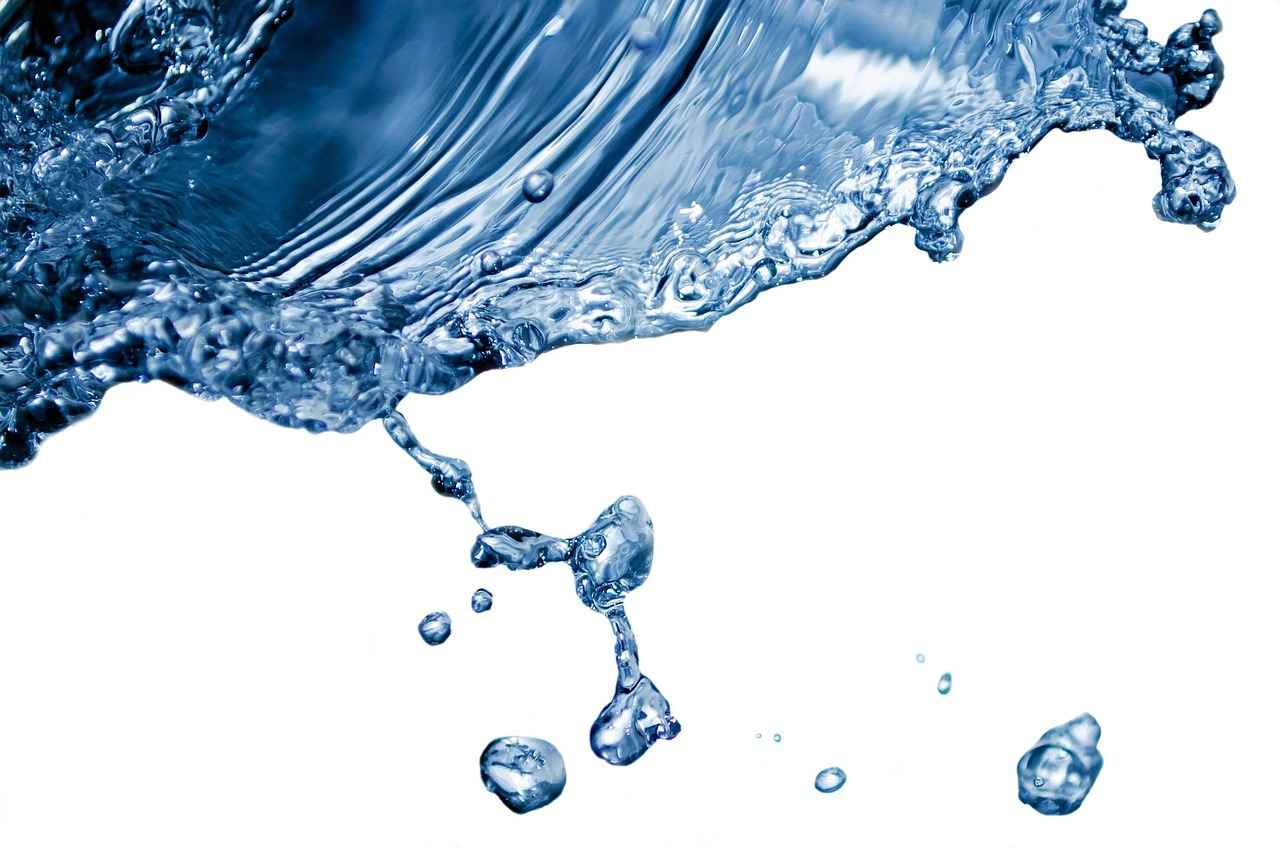This comprehensive guide explores the concept of water fasting, including its benefits, risks, and duration. Understand the science behind it and learn how to approach this practice safely.
What is Water Fasting?
Water fasting is the practice of abstaining from all food and consuming only water for a designated period. Historically, it has been used for spiritual and health-related purposes. Many cultures have embraced fasting as a means of detoxification and self-discipline, making it a significant part of various traditions worldwide.
Benefits of Water Fasting
Water fasting has been linked to numerous health benefits, such as:
- Weight Loss
- Improved Metabolic Health
- Enhanced Mental Clarity
This section delves into the scientifically backed advantages of this practice, highlighting how water fasting can lead to substantial improvements in overall health.
Weight Loss and Metabolism
One of the most notable effects of water fasting is weight loss. When the body is deprived of food, it begins to utilize stored fat for energy, leading to a decrease in body weight. This section discusses the metabolic changes that occur during fasting, including increased fat oxidation.
Caloric Deficit and Fat Loss
Understanding how water fasting creates a caloric deficit is crucial. By not consuming calories, the body is forced to rely on its energy reserves, leading to fat loss over time. This subsection will explain the relationship between fasting and fat loss in detail.
Impact on Insulin Sensitivity
Another significant benefit of water fasting is its potential to improve insulin sensitivity. Fasting can lower insulin levels, making it easier for the body to utilize glucose, which is essential for metabolic health.
Detoxification and Cellular Repair
Fasting is believed to facilitate detoxification and promote cellular repair. This section will discuss how water fasting aids in removing toxins and enhances autophagy, the body’s natural process of cleaning out damaged cells.
How Long Can You Safely Water Fast?
Determining the safe duration for water fasting is critical. Guidelines suggest that individuals can safely fast for varying lengths depending on several factors, including health status and experience.
Short-Term vs. Long-Term Fasting
Short-term water fasts typically last from 24 hours to several days, while long-term fasts can extend beyond a week. This subsection outlines the differences and helps individuals choose the right approach based on their goals.
Individual Factors to Consider
Factors such as age, health status, and fasting experience play a crucial role in determining how long one can safely fast. It is essential to consider these individual differences to ensure a safe fasting experience.
Potential Risks of Water Fasting
While water fasting can offer benefits, it also comes with risks that should not be overlooked. Understanding these risks is vital for anyone considering this practice.
Electrolyte Imbalance
One significant risk of extended water fasting is electrolyte imbalance. This condition can lead to serious health issues, including heart problems. It is crucial to monitor electrolyte levels during prolonged fasting.
Physical and Mental Side Effects
Water fasting can lead to various physical and mental side effects, such as fatigue, dizziness, and irritability. This subsection discusses common symptoms experienced during fasting and how to manage them effectively.
How to Prepare for a Water Fast
Preparation is key to a successful water fast. This section will provide practical tips on how to prepare your body and mind for fasting.
Gradual Reduction of Food Intake
Gradually reducing food intake before starting a fast can ease the transition. This subsection will offer strategies for tapering off food consumption to minimize discomfort during the fast.
Staying Hydrated
Maintaining hydration is essential during a water fast. We will discuss the importance of water intake and tips for ensuring adequate hydration throughout the fasting period.
Breaking a Water Fast Safely
After completing a water fast, it’s important to break it properly. This section will outline safe practices for reintroducing food into your diet.
Starting with Light Foods
Reintroducing food should begin with light, easily digestible options. This subsection will suggest suitable foods to start with after fasting to avoid overwhelming the digestive system.
Listening to Your Body
It’s crucial to pay attention to your body’s signals when breaking a fast. We will emphasize the importance of mindfulness during this process to ensure a smooth transition back to regular eating.

What is Water Fasting?
Water fasting is a dietary practice that involves abstaining from all solid foods and consuming only water for a designated period. This method of fasting has gained popularity in recent years, not only for its potential health benefits but also for its historical roots and cultural significance.
Historically, water fasting has been utilized across various cultures and religions as a means of spiritual purification and self-discipline. For instance, many religious traditions, including Buddhism, Hinduism, and Christianity, incorporate fasting as a way to enhance spiritual awareness and foster a deeper connection with the divine. In these contexts, fasting is often seen as a way to cleanse the body and mind, allowing individuals to focus more on their spiritual practices.
In addition to its spiritual significance, water fasting has been practiced for centuries for health reasons. Ancient civilizations, including the Greeks and Egyptians, recognized the potential of fasting to promote healing and longevity. Modern science has begun to validate some of these ancient beliefs, as research suggests that water fasting may offer numerous health benefits, such as improved metabolic health and enhanced cellular repair.
Water fasting typically involves a period of complete abstinence from food, lasting anywhere from 24 hours to several days. The duration of the fast can vary based on individual goals and health conditions. During this time, the body undergoes various physiological changes, including a shift from using glucose as its primary energy source to utilizing fat stores. This metabolic switch can lead to weight loss and improved insulin sensitivity, making water fasting an attractive option for those looking to enhance their health.
Moreover, water fasting is believed to trigger a process known as autophagy, where the body cleanses itself of damaged cells and regenerates new ones. This cellular repair mechanism is thought to contribute to the longevity and overall health of individuals who practice fasting.
Despite its potential benefits, it is essential to approach water fasting with caution. Individuals considering this practice should be aware of their health status and consult with healthcare professionals, especially if they have underlying medical conditions. Proper preparation and understanding of the body’s needs during a fast are crucial to ensure safety and effectiveness.
In summary, water fasting is a multifaceted practice with deep historical roots and significant cultural importance. As individuals explore this fasting method, they may find not only physical benefits but also a profound sense of clarity and connection to their inner selves.

Benefits of Water Fasting
Water fasting, a practice that involves abstaining from all food and consuming only water for a defined period, has gained popularity due to its numerous health benefits. This section will explore the scientifically backed advantages of water fasting, providing insights into how it can positively impact your overall health.
- Weight Loss: One of the most significant benefits of water fasting is its ability to promote weight loss. During a water fast, the body enters a state of ketosis, where it begins to burn fat for fuel instead of carbohydrates. This metabolic shift can lead to a decrease in body weight, particularly in individuals who are overweight or obese.
- Improved Metabolic Health: Water fasting has been linked to enhanced metabolic health. Studies suggest that fasting can improve insulin sensitivity, which is crucial for regulating blood sugar levels. When insulin sensitivity improves, the body can utilize glucose more effectively, reducing the risk of type 2 diabetes.
- Detoxification: Water fasting is thought to facilitate the body’s natural detoxification processes. By abstaining from food, the digestive system gets a break, allowing the body to focus on eliminating toxins and waste products. This can lead to improved organ function and overall well-being.
- Cellular Repair: Fasting triggers a process known as autophagy, where the body cleans out damaged cells and regenerates new ones. This cellular repair mechanism is vital for maintaining health and preventing diseases, including cancer.
- Enhanced Mental Clarity: Many individuals report improved mental clarity and focus during water fasting. This may be due to the increase in the production of brain-derived neurotrophic factor (BDNF), a protein that supports brain health and cognitive function.
- Reduced Inflammation: Water fasting has been shown to decrease levels of inflammation in the body. Chronic inflammation is associated with various health issues, including heart disease and autoimmune disorders. By reducing inflammation, fasting may help lower the risk of these conditions.
In summary, the benefits of water fasting extend beyond weight loss to include significant improvements in metabolic health, detoxification, cellular repair, mental clarity, and inflammation reduction. However, it is essential to approach water fasting with caution and to consult with a healthcare professional before beginning any fasting regimen, especially for individuals with pre-existing health conditions.
Weight Loss and Metabolism
One of the most significant effects of water fasting is its ability to facilitate weight loss. This practice, which involves abstaining from all food and consuming only water for a set period, can trigger various metabolic changes that promote fat burning. Understanding how fasting influences metabolism is essential for anyone considering this approach to weight management.
When the body undergoes a water fast, it enters a state of ketosis. In this state, the body shifts from using glucose as its primary energy source to utilizing fat stores. As glycogen reserves are depleted, the liver begins to convert fatty acids into ketones, which serve as an alternative fuel source. This metabolic shift not only aids in fat loss but also helps preserve lean muscle mass, making water fasting an effective strategy for weight management.
Moreover, fasting induces a caloric deficit, a fundamental principle for weight loss. By consuming no calories, the body starts to burn stored fat to meet its energy needs. Research indicates that even short-term water fasting can lead to a noticeable decrease in body weight and fat percentage. This process is further enhanced by the reduction in insulin levels, which occurs during fasting. Lower insulin levels promote fat mobilization from adipose tissue, facilitating fat oxidation.
Another key aspect of water fasting is its impact on insulin sensitivity. Improved insulin sensitivity allows the body to utilize glucose more effectively, reducing the likelihood of fat storage. Studies have shown that periods of fasting can lead to enhanced insulin sensitivity, which is beneficial not only for weight loss but also for overall metabolic health.
Additionally, water fasting can influence hormones that regulate hunger and satiety. For instance, fasting has been shown to increase levels of norepinephrine, a hormone that boosts metabolism and fat burning. Conversely, it can decrease levels of ghrelin, the hunger hormone, leading to reduced appetite. This hormonal balance can make it easier for individuals to adhere to their fasting schedule and achieve their weight loss goals.
| Hormone | Effect During Fasting |
|---|---|
| Norepinephrine | Increases, enhancing metabolism |
| Ghrelin | Decreases, reducing hunger |
| Insulin | Decreases, promoting fat mobilization |
While the benefits of water fasting for weight loss are compelling, it’s crucial to approach this practice with caution. Extended fasting can lead to nutritional deficiencies and other health risks, particularly if not done under medical supervision. Therefore, individuals should consider their health status and consult with healthcare professionals before embarking on a prolonged fast.
In summary, water fasting can be a powerful tool for weight loss and improving metabolic health. By understanding the mechanisms through which fasting influences metabolism, individuals can make informed decisions about their dietary practices and achieve their health goals effectively.
Caloric Deficit and Fat Loss
Understanding the mechanics of caloric deficit is vital for anyone interested in weight loss and overall health. A caloric deficit occurs when you consume fewer calories than your body expends in a given time frame. This fundamental principle lies at the heart of effective weight management, and water fasting can be a powerful tool in achieving this state.
During a water fast, individuals abstain from all food and only consume water, leading to a significant reduction in caloric intake. By eliminating food, your body begins to tap into its fat reserves for energy, initiating a process known as lipolysis. This is where the stored fat is broken down into fatty acids and glycerol, which are then used as fuel. The result is a gradual decrease in body fat percentage, which is often the primary goal for those engaging in fasting.
Moreover, fasting triggers a series of metabolic adaptations. Initially, the body uses glycogen stores for energy. Once these stores are depleted, typically within the first 24 hours, the body shifts to burning fat. This transition is crucial as it not only aids in fat loss but also encourages the release of ketones, which can provide a more stable energy source for the brain and body.
Research indicates that water fasting can significantly enhance fat oxidation. A study published in the journal Obesity found that individuals who engaged in intermittent fasting experienced greater fat loss compared to those who followed a standard caloric restriction diet. This suggests that the method of fasting may be more effective for some individuals in achieving their weight loss goals.
Additionally, fasting can have a positive effect on hormonal balance. When you fast, insulin levels drop, which facilitates fat breakdown. Lower insulin levels also promote the release of growth hormone, which can further enhance fat loss and muscle preservation during weight loss efforts. This hormonal shift is essential for maintaining muscle mass while shedding excess fat.
It’s also important to consider the psychological aspects of fasting. Many individuals report feeling a sense of control and accomplishment when they successfully complete a water fast. This can lead to positive changes in eating behaviors and a more mindful approach to food consumption post-fast.
However, it’s crucial to approach water fasting with caution. Not everyone is suited for this method, and potential risks include electrolyte imbalances and nutrient deficiencies if not properly managed. Individuals with certain health conditions or those on medications should consult with healthcare professionals before embarking on a fasting regimen.
In summary, understanding how water fasting creates a caloric deficit is essential for those looking to lose weight effectively. By harnessing the body’s natural mechanisms for fat burning, water fasting can be a beneficial strategy when done safely and responsibly. Remember, the key is to listen to your body and ensure that any fasting plan aligns with your individual health needs and goals.
Impact on Insulin Sensitivity
Water fasting has gained popularity not only for its potential weight loss benefits but also for its profound effects on metabolic health. One of the most significant advantages of this practice is its . Insulin sensitivity refers to how effectively the body’s cells respond to insulin, a hormone crucial for regulating blood sugar levels. When insulin sensitivity is high, the body can manage glucose more efficiently, reducing the risk of type 2 diabetes and other metabolic disorders.
During a water fast, the body undergoes various physiological changes that can enhance insulin sensitivity. As the body transitions to a fasting state, insulin levels drop significantly. This reduction in insulin not only aids in fat burning but also allows the cells to reset their sensitivity to this vital hormone. Research indicates that periods of fasting can lead to improved glucose metabolism, which is essential for maintaining energy levels and overall health.
One of the mechanisms behind improved insulin sensitivity during fasting is the process of autophagy. Autophagy is the body’s way of cleaning out damaged cells and regenerating new ones. This cellular repair process is amplified during fasting, leading to enhanced metabolic functions. As cells rejuvenate, their ability to respond to insulin improves, allowing for better glucose uptake and utilization.
Additionally, fasting can positively influence hormonal balance. For instance, fasting has been shown to increase levels of adiponectin, a hormone that plays a role in regulating glucose levels and fatty acid breakdown. Higher levels of adiponectin are associated with improved insulin sensitivity, further supporting the metabolic benefits of water fasting.
Moreover, studies have demonstrated that intermittent fasting, which includes water fasting, can lead to significant reductions in body fat percentage. Since excess body fat, particularly around the abdomen, is linked to insulin resistance, losing this fat can enhance insulin sensitivity. This creates a positive feedback loop: as insulin sensitivity improves, the body becomes more efficient at burning fat, leading to further weight loss and metabolic health improvements.
It’s important to note that while water fasting can offer these benefits, it is not suitable for everyone. Individuals with certain health conditions, such as diabetes or eating disorders, should consult with a healthcare professional before undertaking a fasting regimen. Additionally, the duration and frequency of fasting should be tailored to individual health needs and goals.
In summary, the impact of water fasting on insulin sensitivity is a compelling aspect of this practice. By promoting hormonal balance, enhancing cellular repair, and facilitating fat loss, water fasting can play a vital role in improving metabolic health. As more individuals seek natural methods to enhance their well-being, understanding the relationship between fasting and insulin sensitivity becomes increasingly important.
Detoxification and Cellular Repair
Water fasting is a powerful practice that many believe can significantly enhance the body’s natural ability to detoxify and promote cellular repair. By abstaining from all food and consuming only water, the body enters a state that can lead to profound physiological changes. This section will explore how water fasting aids in the removal of toxins and promotes autophagy, a crucial process for cellular maintenance.
During a water fast, the body is deprived of calories, which triggers a shift in metabolism. As glycogen stores deplete, the body begins to utilize fat for energy. This metabolic switch not only aids in weight loss but also initiates a series of detoxification processes. The liver, a vital organ for detoxification, becomes more efficient at processing toxins and waste products as the body conserves energy.
One of the most significant benefits of fasting is its role in autophagy. Autophagy is a cellular “clean-up” process where the body recycles damaged cells and proteins. This mechanism is essential for maintaining cellular health and function. When fasting, the absence of nutrients signals cells to initiate autophagy, allowing them to remove dysfunctional components and regenerate. This process not only supports cellular repair but also has been linked to longevity and reduced risk of various diseases.
| Benefits of Autophagy | Description |
|---|---|
| Cellular Repair | Removes damaged organelles and proteins, promoting healthier cells. |
| Reduced Inflammation | Helps mitigate inflammatory responses, potentially lowering the risk of chronic diseases. |
| Enhanced Immune Function | Supports the immune system by removing pathogens and damaged cells. |
| Longevity | May contribute to increased lifespan through improved cellular health. |
Moreover, water fasting can influence the production of growth hormones and other beneficial compounds that further enhance detoxification and cellular repair. Increased levels of human growth hormone (HGH) during fasting can aid in muscle preservation and fat loss, while also playing a role in recovery and tissue repair.
It is important to note that while water fasting can facilitate detoxification, it should be approached with caution. Individuals with certain health conditions or those who are pregnant should consult healthcare professionals before attempting a prolonged fast. Additionally, proper hydration is crucial during this period to support kidney function and toxin elimination.
In summary, water fasting can serve as an effective method for detoxification and cellular repair through the processes of autophagy and metabolic shifts. By understanding these mechanisms, individuals can make informed decisions about incorporating fasting into their health and wellness routines.

How Long Can You Safely Water Fast?
Determining the safe duration for water fasting is critical for ensuring both health and effectiveness. This section will provide comprehensive guidelines on how long individuals can fast based on various factors, including health status, age, and experience with fasting.
Water fasting typically involves abstaining from all food and consuming only water for a specified duration. While some may wonder, “How long can I safely fast?”, the answer is not straightforward. It varies significantly from person to person.
Short-term water fasts generally last from 24 hours to 3 days. These fasts can be beneficial for beginners and those looking to detoxify their bodies. During this period, individuals often experience increased energy levels and improved mental clarity. However, it is essential to listen to your body and stop if you feel unwell.
Long-term fasting, lasting from several days to weeks, should only be undertaken with medical supervision. Extended fasting can lead to significant nutrient deficiencies and health risks, including electrolyte imbalances and muscle loss. Therefore, it is crucial to consult with a healthcare provider before embarking on a long-term fast.
- Age: Younger individuals may tolerate fasting better than older adults, who may have underlying health conditions.
- Health Status: Those with chronic conditions such as diabetes or heart disease should approach fasting cautiously.
- Fasting Experience: Beginners should start with shorter fasts and gradually increase duration as they become more comfortable.
During any fasting period, staying hydrated is essential. Water helps maintain bodily functions and can alleviate some side effects associated with fasting, such as headaches and fatigue. A general guideline is to drink at least 2-3 liters of water daily while fasting.
It’s vital to recognize when to end a fast. If you experience severe dizziness, fainting, or persistent nausea, you should break your fast immediately. Your health should always take precedence over the duration of your fast.
Before starting a water fast, especially for an extended period, it’s advisable to consult with a healthcare professional. They can provide personalized advice based on your health history and goals, ensuring a safer fasting experience.
In summary, the duration of a water fast should be tailored to individual circumstances. By understanding your body’s needs and limitations, you can safely explore the benefits of water fasting while minimizing risks. Always prioritize safety and health over the length of your fast.
Short-Term vs. Long-Term Fasting
When it comes to fasting, understanding the differences between short-term and long-term fasting is crucial for anyone considering this practice. Short-term water fasts typically last from 24 hours to several days, while long-term fasts can extend for weeks or even months. Each type of fasting offers distinct benefits and challenges, making it essential to choose the right approach based on individual health goals and circumstances.
Short-term fasting, often seen as a more approachable method, allows individuals to experience the benefits of fasting without the extended duration that can lead to complications. During a short-term fast, the body primarily relies on glycogen stores for energy before transitioning to fat burning. This type of fasting can help with weight loss, improve metabolic health, and even promote mental clarity. Many people find that a short fast is easier to manage, as it requires less adjustment to daily routines.
In contrast, long-term fasting can lead to more profound physiological changes. When fasting for an extended period, the body enters a state of ketosis, where fat becomes the primary fuel source. This shift can have significant effects on weight loss and may even enhance cellular repair processes through autophagy. However, long-term fasting also poses higher risks, such as electrolyte imbalances and nutrient deficiencies, which can lead to serious health issues if not monitored carefully.
| Aspect | Short-Term Fasting | Long-Term Fasting |
|---|---|---|
| Duration | 24 hours to several days | Weeks to months |
| Energy Source | Glycogen, then fat | Primarily fat (ketosis) |
| Health Benefits | Weight loss, improved metabolism | Cellular repair, potential longevity benefits |
| Risks | Minimal, manageable | Electrolyte imbalance, nutrient deficiencies |
It’s essential to consider individual factors when deciding on the type of fasting to pursue. Age, health status, and previous fasting experience all play a role in determining what is safe and effective. For instance, those with underlying health conditions or those new to fasting may benefit more from short-term fasting, while experienced individuals might explore the potential benefits of longer fasts.
Ultimately, whether one chooses to engage in short-term or long-term fasting, it is vital to approach the practice with caution and awareness. Consulting with a healthcare professional can provide personalized guidance and help mitigate potential risks. By understanding the differences and implications of each fasting type, individuals can make informed decisions that align with their health objectives.
Individual Factors to Consider
When it comes to water fasting, understanding the individual factors that influence how long one can safely fast is essential. Each person’s body responds differently to fasting based on a variety of factors, including age, health status, and fasting experience. Let’s explore these considerations in detail.
- Age: Age can significantly impact how the body handles fasting. Younger individuals may have a higher metabolic rate and better overall health, allowing for longer fasting periods. In contrast, older adults may experience more challenges due to a slower metabolism and potential underlying health conditions. It’s crucial for older adults to consult healthcare professionals before attempting extended fasts.
- Health Status: An individual’s health condition plays a pivotal role in determining fasting duration. Those with chronic illnesses such as diabetes, heart disease, or kidney issues should approach fasting with caution. For instance, individuals with diabetes may experience dangerous fluctuations in blood sugar levels during fasting. It is advisable to seek medical guidance to establish safe fasting practices tailored to one’s health needs.
- Fasting Experience: Experience with fasting can also dictate how long one can safely fast. Beginners may find it challenging to fast for extended periods, often experiencing more pronounced side effects such as fatigue, headaches, or irritability. On the other hand, seasoned fasters might be able to tolerate longer fasting durations due to their bodies being accustomed to the process. Gradual increases in fasting duration can help build tolerance.
Moreover, psychological factors should not be overlooked. An individual’s mental resilience and motivation can greatly influence their fasting experience. Those who are mentally prepared and understand the fasting process may find it easier to adhere to longer fasting periods.
Additionally, external factors such as environment and support systems can also affect fasting duration. A supportive environment, where friends or family members encourage fasting, can enhance compliance and make the process less daunting. Conversely, stressful environments may hinder one’s ability to fast effectively.
In conclusion, while water fasting can provide numerous health benefits, it is crucial to consider these individual factors before embarking on a fasting journey. Each person’s unique circumstances will dictate the safest and most effective fasting duration. Always prioritize health and safety by consulting with a healthcare professional to tailor fasting practices to individual needs.

Potential Risks of Water Fasting
Water fasting, while often praised for its potential health benefits, is not without its risks. Understanding these risks is crucial for anyone considering this practice. This section will delve into the various potential health risks associated with prolonged water fasting, ensuring you are well-informed before embarking on such a journey.
- Electrolyte Imbalance: One of the most significant risks of extended water fasting is the potential for electrolyte imbalance. Electrolytes, such as sodium, potassium, and magnesium, are essential for various bodily functions, including muscle contractions and nerve signaling. Prolonged fasting can lead to dangerously low levels of these vital minerals, resulting in symptoms such as muscle cramps, dizziness, and even cardiac issues.
- Physical Side Effects: During a water fast, individuals may experience a range of physical side effects. Common symptoms include fatigue, weakness, and headaches. Additionally, some may encounter gastrointestinal issues like nausea or constipation, which can be exacerbated by the lack of food intake.
- Mental Side Effects: The mental toll of fasting should not be overlooked. Many people report feelings of irritability, anxiety, or mood swings during prolonged periods without food. The brain relies on glucose for energy, and a lack of food can lead to decreased cognitive function and concentration difficulties.
- Potential for Refeeding Syndrome: After an extended fast, reintroducing food must be done cautiously. Rapidly consuming large amounts of food can lead to refeeding syndrome, a dangerous condition characterized by fluid and electrolyte shifts that can cause severe complications, including heart failure.
- Muscle Loss: Prolonged fasting can also lead to muscle loss. When the body is deprived of food for an extended period, it may begin to break down muscle tissue for energy, which can negatively impact overall strength and metabolic health.
In addition to the risks mentioned above, individuals with pre-existing health conditions, such as diabetes or heart disease, should approach water fasting with caution. It is advisable to consult with a healthcare professional before starting any fasting regimen, especially for those on medication or with chronic health issues.
Moreover, the duration of the fast plays a critical role in the level of risk involved. Short-term fasts may pose fewer risks compared to prolonged fasting, which can last for several days or even weeks. Understanding your body’s signals and knowing when to stop is essential for maintaining health and safety during this practice.
In summary, while water fasting can offer certain health benefits, it is essential to recognize and understand the potential risks involved. By being aware of these risks, individuals can make informed decisions about their fasting practices and prioritize their health and well-being.
Electrolyte Imbalance
One of the critical considerations when engaging in extended water fasting is the risk of . Electrolytes are essential minerals in the body that carry an electric charge and play a vital role in various physiological functions, including maintaining fluid balance, muscle contractions, and nerve signaling. When fasting for prolonged periods, the body may not receive adequate electrolytes, leading to potential health complications.
During a water fast, individuals consume only water, which means they are not obtaining any electrolytes from food sources. This can lead to a depletion of key electrolytes such as sodium, potassium, calcium, and magnesium. The consequences of an electrolyte imbalance can range from mild to severe, depending on the duration of the fast and the individual’s overall health.
| Electrolyte | Function | Symptoms of Imbalance |
|---|---|---|
| Sodium | Regulates water balance and blood pressure | Headache, confusion, fatigue |
| Potassium | Supports muscle function and nerve transmission | Muscle weakness, cramps, irregular heartbeat |
| Calcium | Essential for bone health and muscle function | Twitching, muscle spasms, numbness |
| Magnesium | Involved in over 300 biochemical reactions | Fatigue, muscle cramps, anxiety |
As the body experiences electrolyte depletion, individuals may encounter a range of symptoms that can significantly impact their well-being. For instance, low sodium levels can lead to hyponatremia, which may cause headaches, confusion, and even seizures in severe cases. Similarly, inadequate potassium can result in muscle weakness and irregular heart rhythms, which can be life-threatening.
To mitigate the risk of electrolyte imbalance during water fasting, it is crucial to consider the following strategies:
- Consult a healthcare professional: Before starting a prolonged water fast, seek guidance from a doctor or a registered dietitian, especially if you have existing health conditions.
- Consider electrolyte supplementation: Some individuals may benefit from adding electrolyte supplements or consuming mineral-rich beverages during their fast to help maintain balance.
- Monitor symptoms: Pay close attention to how your body feels during the fast. If you experience any severe symptoms, it is essential to break the fast and seek medical advice.
In summary, while water fasting can offer various health benefits, it is vital to be aware of the potential risks associated with electrolyte imbalance. By understanding the importance of electrolytes and taking proactive measures, individuals can engage in water fasting more safely and effectively.
Physical and Mental Side Effects
Water fasting can be a profound experience, but it is essential to recognize that it may lead to various physical and mental side effects. Understanding these symptoms can help individuals prepare for and manage their fasting journey more effectively. This section will explore common symptoms experienced during fasting, offering insights into both the physiological and psychological aspects of this practice.
| Physical Symptoms | Description |
|---|---|
| Fatigue | As the body adjusts to the absence of food, individuals may experience significant fatigue. This is often due to lower energy levels as the body shifts to burning fat for fuel. |
| Dizziness | Many people report feelings of dizziness or lightheadedness, particularly when standing up quickly. This may be attributed to dehydration or low blood sugar levels. |
| Headaches | Headaches are a common complaint during water fasting. They can occur due to withdrawal from caffeine or a lack of nutrients. |
| Muscle Cramps | Without adequate electrolytes, muscle cramps may occur. Staying hydrated and considering electrolyte supplementation can help mitigate this. |
| Digestive Changes | Individuals may notice changes in digestion, including constipation or bloating, as the body adapts to a lack of food intake. |
- Mental Clarity: Interestingly, some individuals report increased mental clarity during fasting. This can be attributed to the body entering a state of ketosis, where fat is used for energy.
- Anxiety and Mood Swings: On the flip side, fasting can also lead to feelings of anxiety or irritability due to hormonal fluctuations and changes in blood sugar levels.
- Focus and Concentration: While some may experience anxiety, others find that their focus and concentration improve as the body adjusts to fasting.
It is crucial to listen to your body and recognize these symptoms as signals. If any physical or mental side effects become overwhelming, it is advisable to break the fast and consult a healthcare professional. By being aware of these potential side effects, individuals can better prepare themselves for the challenges of water fasting and make informed decisions about their health.
In summary, while water fasting can provide various health benefits, it is essential to be mindful of the potential physical and mental side effects that may arise. Being informed and prepared can enhance the fasting experience and promote a healthier approach to this practice.

How to Prepare for a Water Fast
Preparation is key to a successful water fast. Taking the time to properly prepare both your body and mind can significantly enhance your fasting experience and outcomes. Below are some practical tips to help you get ready for your water fast.
- Understand Your Motivation: Before embarking on a water fast, clarify your reasons for doing so. Whether it’s for weight loss, detoxification, or spiritual reasons, having a clear purpose will help you stay focused and committed.
- Consult a Healthcare Professional: It’s essential to consult with a healthcare provider, especially if you have underlying health conditions or are taking medications. They can provide personalized advice and help ensure that fasting is safe for you.
- Gradual Reduction of Food Intake: To ease into your fast, consider gradually reducing your food intake in the days leading up to it. Start by eliminating heavy meals and processed foods. Instead, focus on light, healthy options such as fruits, vegetables, and whole grains.
- Stay Hydrated: Hydration is crucial before and during your fast. In the days leading up to your fast, increase your water intake to ensure your body is well-hydrated. Proper hydration can help mitigate feelings of hunger and fatigue during the fast.
- Prepare Mentally: Fasting can be as much a mental challenge as a physical one. Engage in mindfulness practices, such as meditation or yoga, to help you develop a positive mindset. Visualize your goals and the benefits you hope to gain from fasting.
- Plan Your Fasting Schedule: Decide on the duration of your fast and when it will take place. Having a clear plan can help you mentally prepare and stay committed. Consider starting with a short fast and gradually extending it as you become more comfortable.
- Gather Support: Inform friends or family about your fasting plans. Having a support system can provide encouragement and accountability, making it easier to stick to your goals.
As you approach your water fast, remember that listening to your body is vital. If you feel unwell or experience severe discomfort, it may be necessary to reconsider your fasting approach. Preparation is not just about physical readiness; it also involves mental fortitude and emotional stability. By following these guidelines, you can set yourself up for a successful and rewarding fasting experience.
Gradual Reduction of Food Intake
When preparing for a water fast, gradually reducing food intake can significantly ease the transition and improve your overall fasting experience. This approach helps your body adjust to the upcoming changes, minimizing potential discomfort and side effects. Below are some effective strategies to taper off food consumption before beginning your fast.
- Start with Smaller Portions: Begin by decreasing the size of your meals. Instead of having a full plate, aim for smaller portions. This gradual reduction allows your body to adapt without feeling deprived.
- Eliminate Processed Foods: Transition away from processed and high-sugar foods in the days leading up to your fast. These foods can lead to cravings and spikes in energy levels, making it harder to adjust to a water-only diet.
- Incorporate More Liquids: Replace one or two meals with smoothies or soups. This not only reduces solid food intake but also helps increase your hydration levels, preparing your body for the fast.
- Focus on Nutrient-Dense Foods: Prioritize foods that are high in nutrients yet low in calories, such as fruits and vegetables. This ensures your body receives essential vitamins and minerals while you taper off your food intake.
- Practice Mindful Eating: Pay attention to your eating habits. Chew slowly and savor each bite. This practice can help you feel satisfied with smaller amounts of food, making it easier to reduce intake.
As you approach the day of your fast, it may be beneficial to implement a 24-hour pre-fast period where you consume only liquids. This can further help your body adjust and prepare for the complete absence of food, making the fasting experience smoother.
Additionally, consider keeping a food journal during this tapering phase. Documenting what you eat and how you feel can provide insights into your eating patterns and help you identify any triggers that lead to overeating.
Ultimately, the goal of gradually reducing food intake is to foster a sense of well-being and readiness for the fast. By implementing these strategies, you can create a more manageable transition into water fasting, setting a positive tone for the days ahead. Remember, each person’s body reacts differently, so listen to your own needs and adjust your approach as necessary.
Staying Hydrated
Staying hydrated during a water fast is crucial for maintaining overall health and well-being. While the primary focus of a water fast is to abstain from food, ensuring adequate water intake can significantly influence your fasting experience. In this section, we will explore the importance of hydration, its benefits, and practical tips to help you stay properly hydrated throughout your fasting period.
Importance of Hydration
Water is essential for every bodily function, and during a fast, it plays an even more critical role. Proper hydration helps:
- Regulate Body Temperature: Water helps maintain a stable body temperature, which can fluctuate during fasting.
- Support Metabolism: Staying hydrated aids in metabolic processes, ensuring that your body functions efficiently even in a fasting state.
- Prevent Dehydration: Dehydration can lead to fatigue, dizziness, and headaches, which can be exacerbated during fasting.
- Promote Detoxification: Water facilitates the elimination of toxins through urine and sweat, enhancing the detoxification benefits of fasting.
Tips for Ensuring Adequate Hydration
To maintain optimal hydration while water fasting, consider the following tips:
- Set a Water Intake Goal: Aim to drink at least 2 to 3 liters of water daily, depending on your body size and activity level. Keeping track of your intake can help ensure you meet your hydration goals.
- Drink Regularly: Instead of consuming large amounts of water at once, take small sips throughout the day to keep your hydration levels stable.
- Use Electrolyte Solutions: While water is essential, consider incorporating electrolyte solutions (without added sugars) to replenish lost minerals during extended fasting. This can help prevent electrolyte imbalances.
- Monitor Your Body: Pay attention to signs of dehydration, such as dry mouth, dark urine, and fatigue. Adjust your water intake accordingly.
Hydration and Mental Clarity
Staying hydrated is not only vital for physical health but also for mental clarity. Dehydration can lead to cognitive decline, affecting your ability to focus and think clearly. During a water fast, maintaining hydration can help you stay alert and engaged, making the fasting experience more manageable.
Conclusion
In summary, maintaining hydration during a water fast is essential for both physical and mental well-being. By understanding the importance of water intake and implementing practical hydration strategies, you can enhance your fasting experience and enjoy the myriad benefits that come with it.

Breaking a Water Fast Safely
Breaking a water fast is a crucial step that can significantly impact your recovery and overall health. After a period of abstaining from food, your digestive system may need gentle reintroduction to solid foods. This section will provide essential guidelines and practices for safely breaking your fast.
When you engage in a water fast, your body undergoes various metabolic changes. After fasting, your digestive system has been inactive, and reintroducing food too quickly can lead to discomfort or digestive distress. Therefore, it is vital to approach this phase with care and mindfulness.
- Broths and Soups: Begin with clear broths or light soups. These options are gentle on the stomach and provide hydration.
- Fruits and Vegetables: Soft fruits like bananas or steamed vegetables are excellent choices. They are easy to digest and packed with nutrients.
- Fermented Foods: Incorporating small amounts of fermented foods like yogurt or kefir can help reintroduce beneficial probiotics to your gut.
Once you’ve started with light foods, gradually incorporate more substantial meals. This should be done over several days. Start with small portions and monitor how your body responds. Here’s a suggested timeline:
| Day | Suggested Foods |
|---|---|
| 1 | Clear broths, herbal teas |
| 2 | Soft fruits, steamed vegetables |
| 3 | Light proteins (like eggs or fish), whole grains |
During the refeeding phase, it is crucial to listen to your body’s signals. Pay attention to how different foods make you feel. If you experience discomfort, consider reverting to lighter options. Remember, everyone’s body reacts differently, and what works for one person may not work for another.
Maintaining hydration remains essential even after breaking your fast. Continue to drink plenty of water throughout the day to support digestion and overall well-being. Herbal teas can also be a soothing addition as you transition back to a regular diet.
Engaging in mindful eating can enhance your experience after a fast. Take your time to chew thoroughly and savor each bite. This practice not only aids digestion but also helps you reconnect with your body’s hunger and satiety signals.
If you have any underlying health conditions or are unsure about how to break your fast safely, it is advisable to consult with a healthcare professional or a registered dietitian. They can provide personalized advice tailored to your specific needs and health status.
In conclusion, breaking a water fast requires careful planning and attention to your body’s responses. By starting with light foods, gradually reintroducing more substantial meals, and practicing mindfulness, you can ensure a smooth transition back to a regular diet while maximizing the benefits of your fasting experience.
Starting with Light Foods
After completing a water fast, the process of reintroducing food is critical for your health and well-being. It is essential to approach this phase with care, as your digestive system may need time to readjust. is highly recommended to ease your body back into the routine of digestion.
When selecting foods to break your fast, consider options that are easily digestible and gentle on the stomach. Here are some suitable foods to start with:
- Bone Broth: Rich in nutrients and easy to digest, bone broth provides essential minerals and helps to soothe the digestive tract.
- Vegetable Broth: A great alternative for those who prefer plant-based options, vegetable broth is light and hydrating.
- Fresh Fruit Juices: Diluted fruit juices, especially those made from apples or pears, can offer natural sugars and hydration without overwhelming the digestive system.
- Steamed Vegetables: Soft, steamed vegetables like zucchini or carrots are nutritious and easy to digest, making them ideal for the first meal after fasting.
- Plain Yogurt: A source of probiotics, yogurt can help restore gut bacteria while being gentle on the stomach.
- Oatmeal: A small serving of plain oatmeal can provide fiber and energy, helping to kickstart your metabolism.
As you begin to reintroduce these foods, it is crucial to listen to your body. Pay attention to how you feel after consuming each item. If you experience discomfort, it may be a sign that your body needs more time before processing more complex foods.
In addition to choosing the right foods, consider the following tips for a successful transition:
- Start Small: Begin with small portions to avoid overwhelming your digestive system.
- Stay Hydrated: Continue to drink plenty of water to aid digestion and maintain hydration levels.
- Avoid Processed Foods: Steer clear of heavy, processed, or fried foods initially, as they can lead to digestive discomfort.
- Gradually Increase Complexity: After a few days, you can slowly introduce more complex foods such as lean proteins and whole grains.
By carefully selecting light foods and listening to your body, you can effectively transition back to a regular diet after fasting. This mindful approach not only supports your digestive health but also enhances your overall well-being as you continue your journey towards better health.
Listening to Your Body
When it comes to breaking a water fast, mindfulness is key. Your body has been through a significant period of abstaining from food, and it will communicate its needs as you transition back to eating. Listening to your body’s signals is essential for ensuring a safe and healthy reintroduction of food.
During the fasting period, your body undergoes various physiological changes, including shifts in metabolism and energy levels. As you prepare to break your fast, it is important to be aware of how your body feels. Pay close attention to any sensations of hunger, fullness, or discomfort. These signals can guide you in choosing the right foods and portion sizes.
- Start Slow: After a prolonged fast, your digestive system may be sensitive. Begin with small portions of easily digestible foods, such as broth, fruit juices, or steamed vegetables.
- Hydration Matters: Continue to prioritize hydration. Drinking water or herbal teas can help ease your body back into the eating process.
- Monitor Your Energy Levels: As you reintroduce food, observe your energy levels. If you feel fatigued or bloated, consider adjusting the types and amounts of food you consume.
Being mindful also means acknowledging your emotional state. Fasting can evoke various feelings, from euphoria to irritability. Recognizing these emotions can help you navigate the transition more effectively. If you find yourself craving unhealthy foods, take a moment to reflect on whether you are truly hungry or if it’s an emotional response.
Moreover, it’s beneficial to maintain a journal during this period. Documenting your feelings, hunger levels, and food choices can provide valuable insights into how your body responds to different foods. Over time, this practice can enhance your understanding of your body’s needs and preferences.
In summary, breaking a water fast requires a delicate balance of mindfulness and responsiveness to your body’s signals. By starting with light foods, staying hydrated, and being aware of both physical and emotional responses, you can ensure a smoother transition back to regular eating habits. Remember, your body is your best guide; trust its signals and adjust your approach as necessary for a successful reintroduction to food.
Frequently Asked Questions
- What is the maximum duration for a water fast?
While the duration can vary, most experts suggest that a water fast should generally not exceed 3 to 7 days for safety reasons. Prolonged fasting can lead to serious health risks.
- Can I exercise while water fasting?
It’s best to keep physical activity light during a water fast. Strenuous exercise can lead to fatigue and dehydration, so listen to your body and adjust accordingly.
- What should I do if I feel unwell during a fast?
If you experience dizziness, extreme fatigue, or other concerning symptoms, it’s crucial to break your fast and consult a healthcare professional. Your health should always come first!
- How should I prepare for a water fast?
Preparation is key! Gradually reduce your food intake a few days before starting, and ensure you stay well-hydrated. This will help your body adjust more comfortably to the fasting process.
- What foods should I eat after breaking a water fast?
Start with light, easily digestible foods like fruits or broths. This gentle reintroduction helps your digestive system adjust without overwhelming it.












